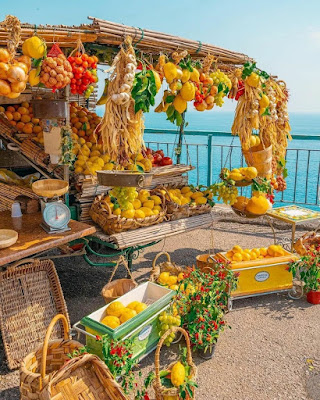THE AFRICAN NOVELS WE READ
I have always enjoyed reading, maybe more than writing. A book was perhaps the first real toy I had. At the age of four, I attended school for the first time. It was not a regular preschool. It was sometimes a makeshift structure or an old building, and half the time we sat under some trees to learn.
A couple of months before that, my family and I were dodging bomb strikes and bullets in the jungles of Southeast Nigeria. There had been a civil war in my homeland. In a war that lasted thirty months (2.5 years), we wandered from place to place, living in churches and makeshift refugee camps. The war finally ended on January 15th, 1970.
I started school as soon as my family was able to reach my hometown. After several days of walking and the war was declared over. Anyway, I have some memory of that school, where I was taught the alphabet and numbers. And wrote on chalk slates.
One Sunday, my father was reading his newspaper, and I spelled out some words and tried to pronounce them. This was the first time I probably read to him. Subsequently, he gifted me with the Ladybird series of books for children when we relocated to Lagos, my birthplace.
That sparked my love for reading and books. I would spend hours with my nose buried in a book. He had a library of books himself, so I grew up around all kinds of books and encyclopedias. When I moved to the Western hemisphere and started hearing phrases like "Blacks don't read" I was puzzled. Although I had never referred to myself as black before then, I soon realized I was supposed to be Black. And that the phrase "Blacks don't read" was a grossly inaccurate stereotype.
Don't get me wrong, I have no problem being referred to as 'Black", but where I come from, it was never a thing, perhaps because 200 million of us were basically a similar shade of skin tone, with variations. And Black was not one of them. Ebony, Brown, Mahogany, Ivorian cocoa bean, caramel perhaps
Well, this is about how teenagers of my generation in Nigeria, spent their leisure time. We read and read a lot. I grew up in one of Africa's richest countries in the late 1970s and 1980s. We mostly read, played outside, and watched television with limited channels, and I can tell you that was the best time of my life.
If you are Gen X and Nigerian, you must be familiar with these books. As a teenager, it was like a coming-of-age ritual to read them. Back then if a boy wanted to impress a girl, he always had a book on him. There were no smartphones or "Dumb" phones. He did not have to impress you with the latest iPhone or "Jordans". He slipped one of these books or some other in his back pocket and walked around like a king. And us girls would be mightly impressed, it showed us, he had something between his ears. those were simpler times.
Although we read novels written mostly by African writers both in school and at home. There was also the "Pacesetters series" that we all enjoyed. We also read novels from many parts of the world, literally all the Shakespeare books, and Chaucer in English literature class.
Outside of school, I read everything I could lay my hands on and must confess that I was an avid reader of "Mills & Boon" and the "Harlequin" romance novels. I consumed that make-believe like it was going out of fashion. But seriously, reading helped me travel around the world on the pages of many books. And kept many of us out of trouble. Fortunately, there was no Facebook, Instagram, Tiktok, Twitter, and the tens of social media platforms to distract the average teenager
Someone posted this collection on Facebook and my friends and I reminisced about the good old days. And the books we read, how we would exchange books, and have animated discourse about these titles. It was a world we enjoyed and have very nostalgic about. It was a world where reading was the greatest thing to do as teenagers. And we were proud to walk around with books.



Comments
Post a Comment